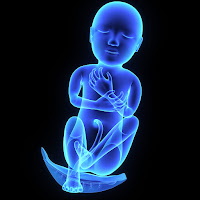Virtual Reality and Copious Wealth May Have Dulled the Pull of Heaven
How wealthy are we in Western Countries, including the United States? Here are the statistics on those living in poverty in the US, which is reflective of Canada and most of Europe.
Here are the percentages of households below the poverty level that the Census Bureau estimates had the following appliances (2013):
Refrigerator: 97.8%
Television: 96.1%
Stove: 96.6%
Microwave: 93.2%
Air conditioner: 83.4%
Video recorder/DVD: 83.2%
Cell phone: 80.9%
Clothes washer: 68.7%
Clothes dryer: 65.3%
Computer: 58.2%
Telephone (landline): 54.9%
Regarding having enough to eat:
Still, government data show that most poor households do not suffer even from temporary food shortages. As Chart 7 shows, 92.5 percent of poor households assert that they always had “enough food to eat” during the previous four months, although 26 percent of these did not always have the foods that they would have preferred. Some 6 percent of poor households state that they “sometimes” did not have enough food, and 1.5 percent say they “often” did not have enough food.
Add to this that only 643,000 people in the US were homeless for even a single night in the last 12 months, and 2/3's of those were in a shelter or transitional housing, and you have the picture of a civilization that has almost no "poverty" at all. In fact, the poor in Western cultures today live better than the middle class of a century ago.
This is not to say that those who are financial characterized as "poor" don't have a struggle regarding food, shelter, health care, and more. It is simply to say that very, very few struggle in the way that the poor of other nations or of past generations in the US struggled.
And all of this is at the low end of the economic ladder. The middle class may include some or even many who make inappropriate decisions regarding their expenditures, including overspending or substance abuse, that cause periods of hardship. But those periods of hardship don't include going hungry or even going without such luxuries as computers, smart phones, cars, entertainment or eating out.
For most in the middle class, their lifestyles are substantially better than those in the 2% most successful just 50 years ago. Almost anyone in the middle class can afford to take a trip to Europe or Hawaii, or cruise the Caribbean. Two or more cars, multiple entertainment systems, and endless entertainment opportunities are just matters of choice. Will I spend my money this year on Hawaii or season tickets, a new laptop or a new game console, more dinners out with drinks and wine or a newer boat.
So what is the lure of Heaven? What is to be hoped for? No more tears, of course. A perfect body. Meeting Jesus. Seeing old friends.
No more tears - Many believe that we are on the way to creating that potential. Given enough distraction and drugs, and eliminating causes like poverty and disease, and presto.
A perfect body - Have you read any articles on transhumanism? We are already changing genetic codes, doing face transplants, and 3D printing skin and livers. Plans for a head transplant are scheduled in 2016.
Seeing old friends - I already have more pictures and videos of old friends than I could ever consume, and I don't even watch those. I can access 30% or more of the current human population by Skype or FaceTime. I suspect that my kids will be able to converse with a hologram of me 40 years from now.
There are other cool things in Heaven. Streets of gold and pearly gates. But most people with plenty of money and time haven't even been to the Grand Canyon or Niagara Falls, much less Jerusalem. I'm not sure the lure of the wonder of heaven will be significant when we can put on an Oculus Rift and walk the streets that Jesus walked in virtual reality from the comfort of our living room.
To be honest, I feel as though I'm going to miss a lot of things that I currently enjoy a lot here on this planet. Business challenges, helping those who are in need of the kind of help I can supply, researching the mysteries of this orb, not to mention current family and friends.
Meeting Jesus would be a very, very, very big deal. Getting my crowns and offering them to Jesus would be amazing. Becoming fully sighted sounds like reason enough to go to heaven. And I am all for adventure. So I, like many believing adults, look forward to heaven, but am in no hurry to get there. Contrast that with Maui. I'm itching to go back to my little grass shack.
I hope I haven't meandered off the trail too far for you to remember the point. For the unbeliever living in a Western culture, the lure or Hope of Heaven is unlikely to be a selling point for following Jesus. So much so that I don't think I've seen any books on how to evangelize even mention the idea.
Surely the fear of hell (discussed here) and the hope Heaven are not the main reasons we want others to join us in trusting Jesus. But these two used to be useful in persuading some. Not so much today.

















